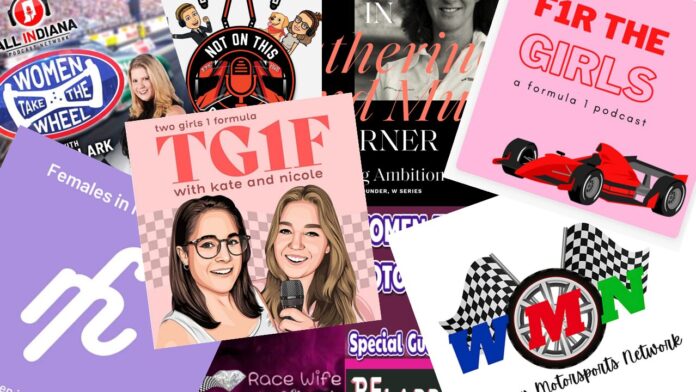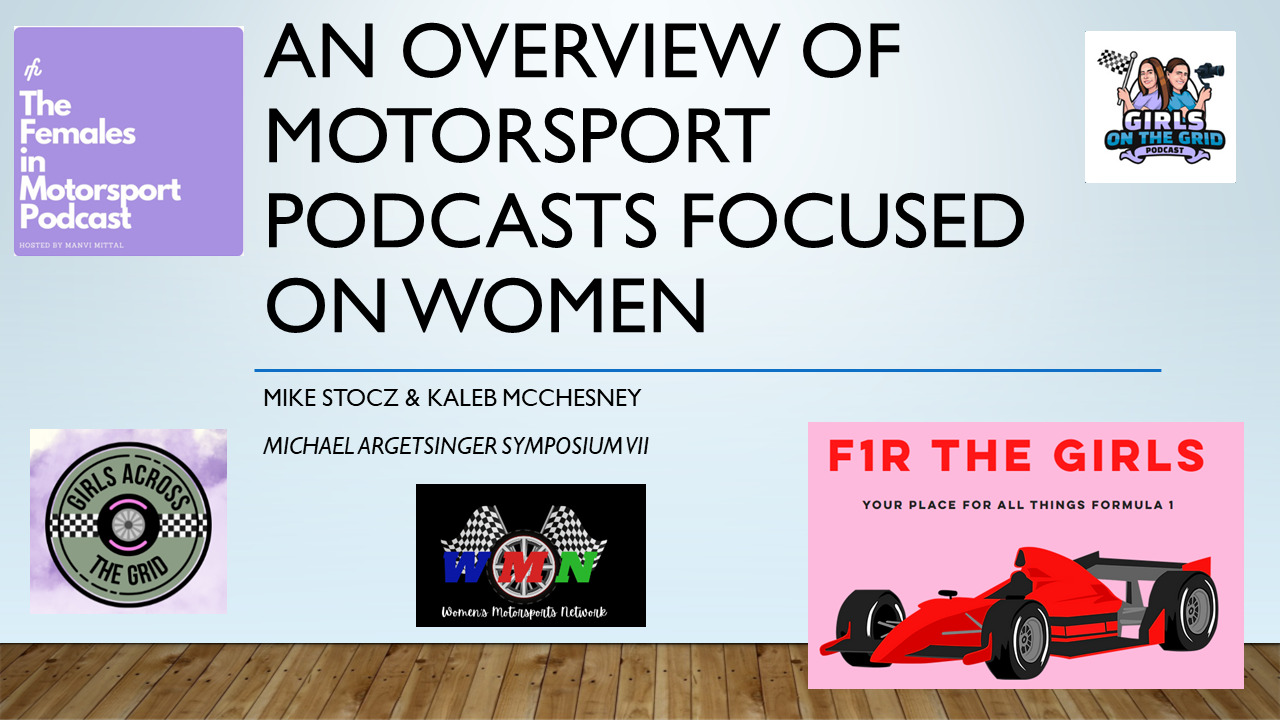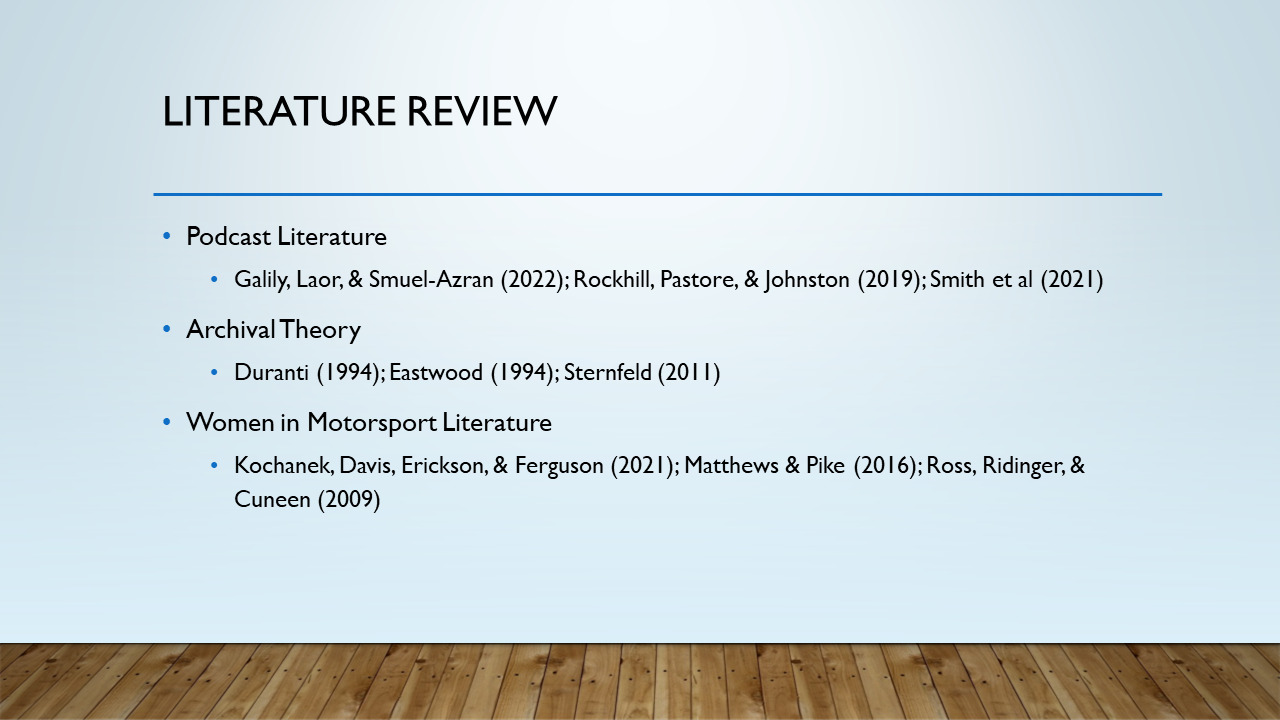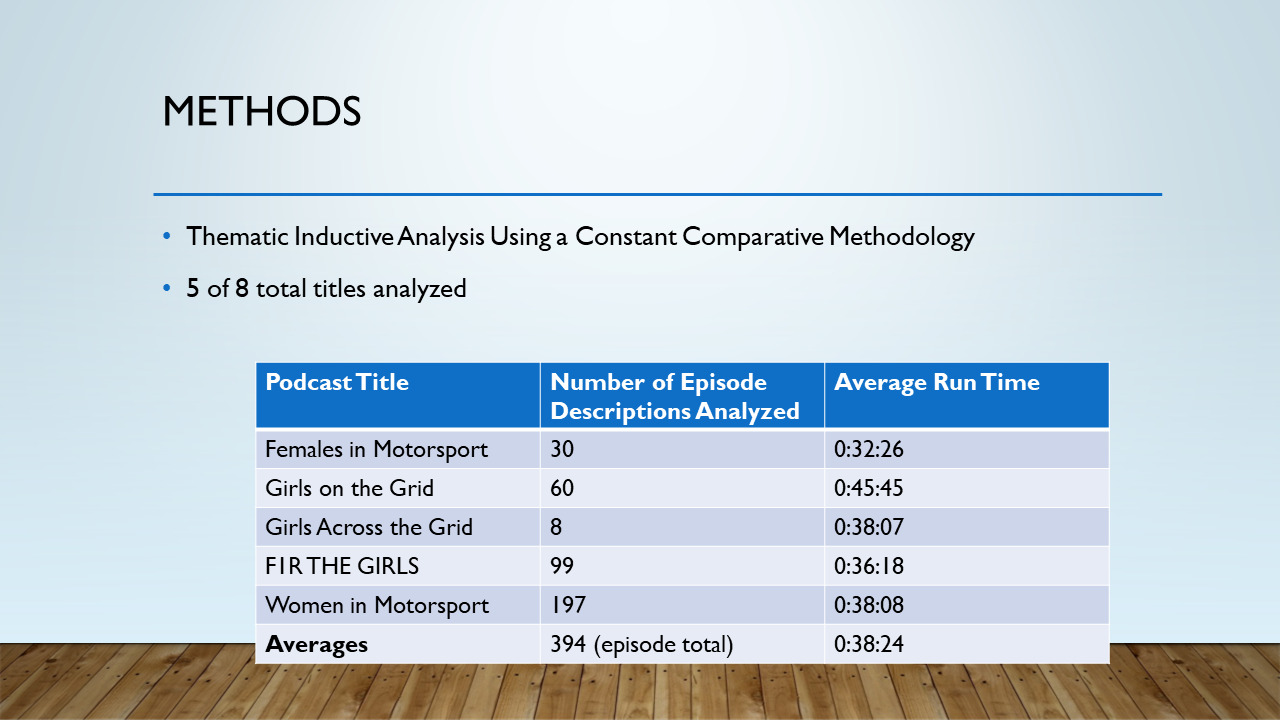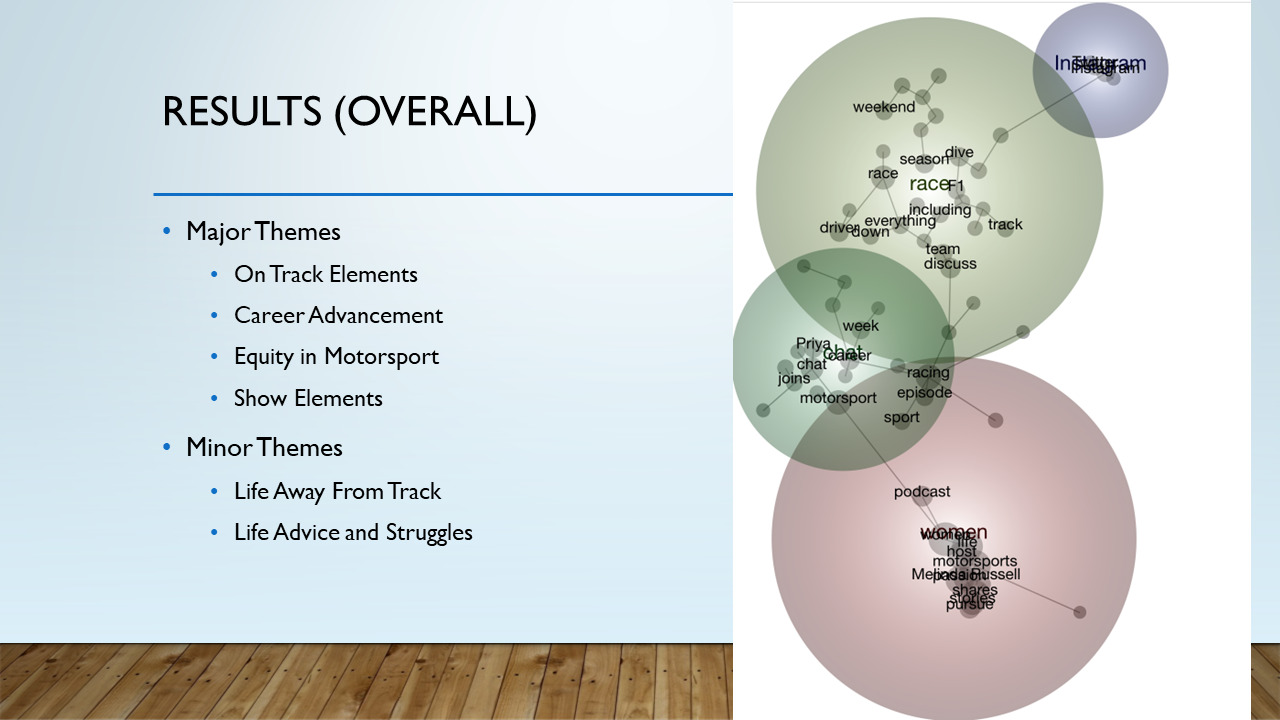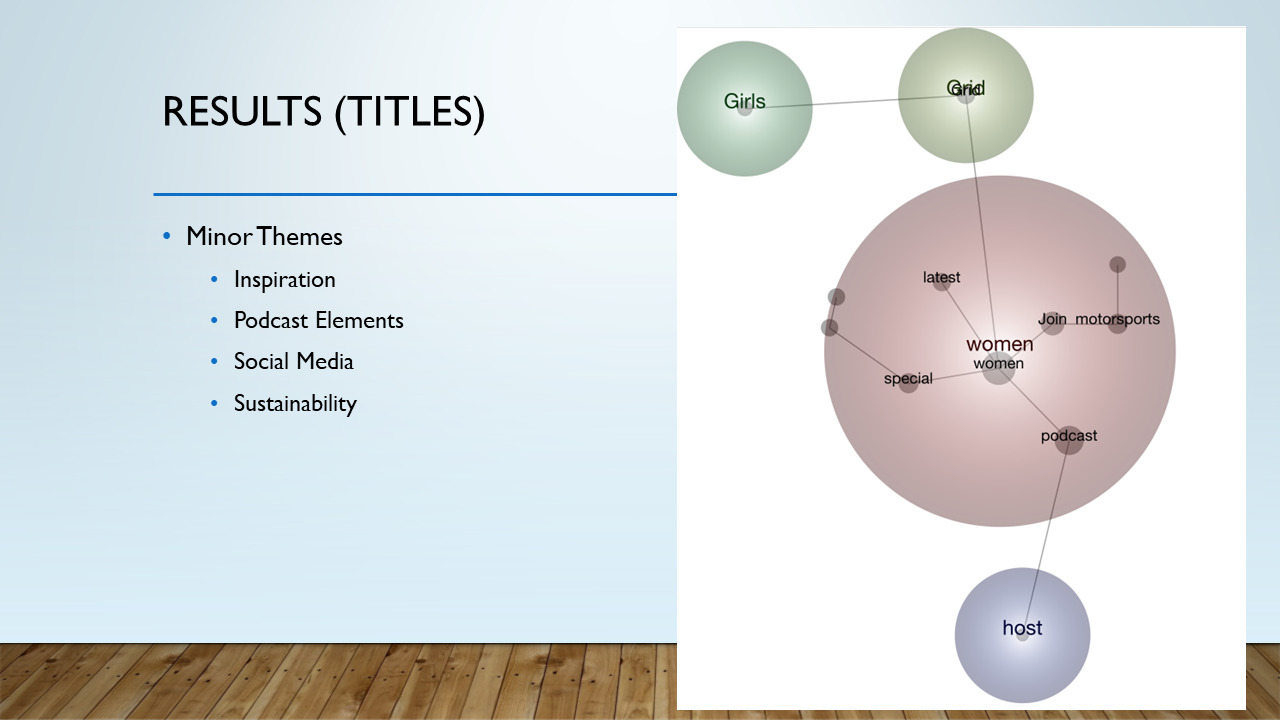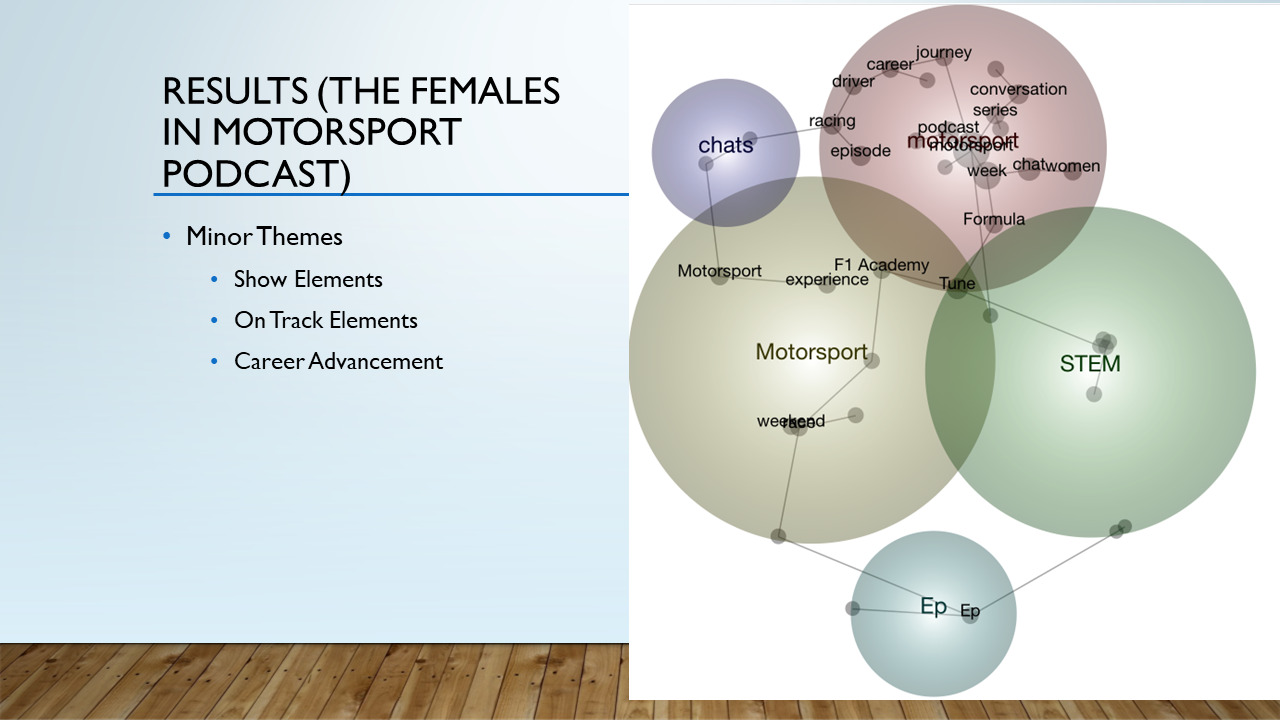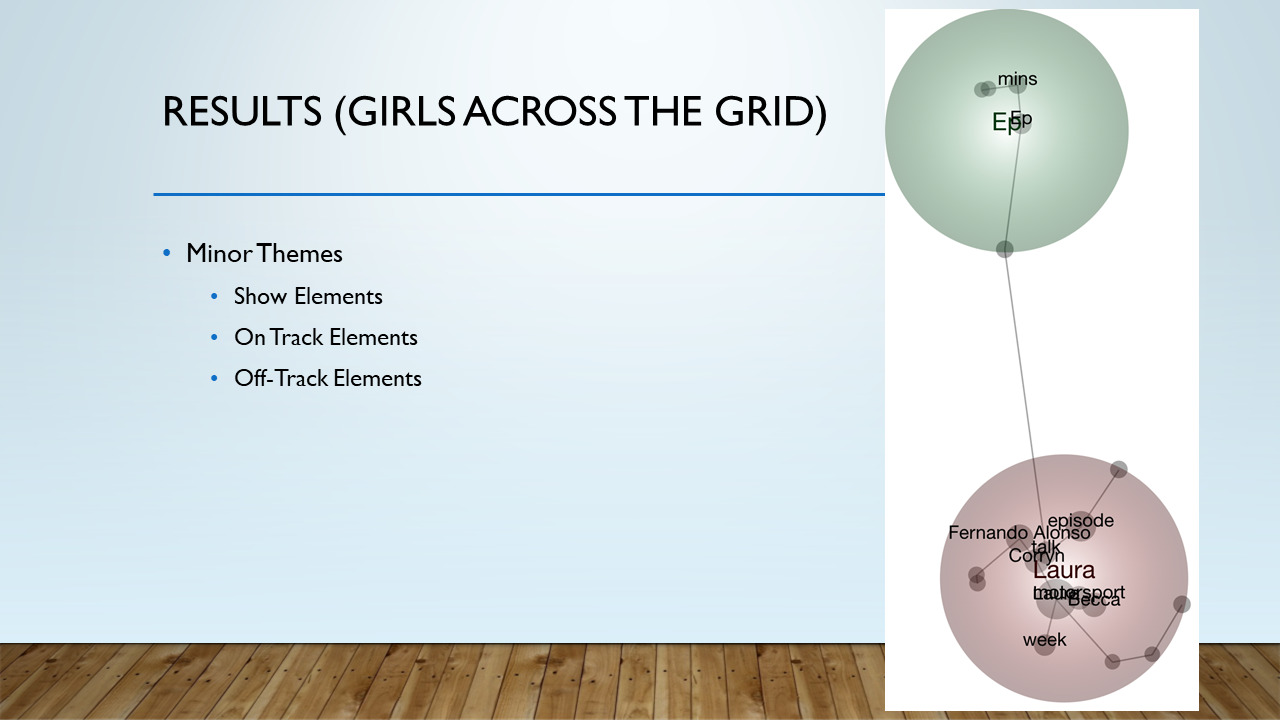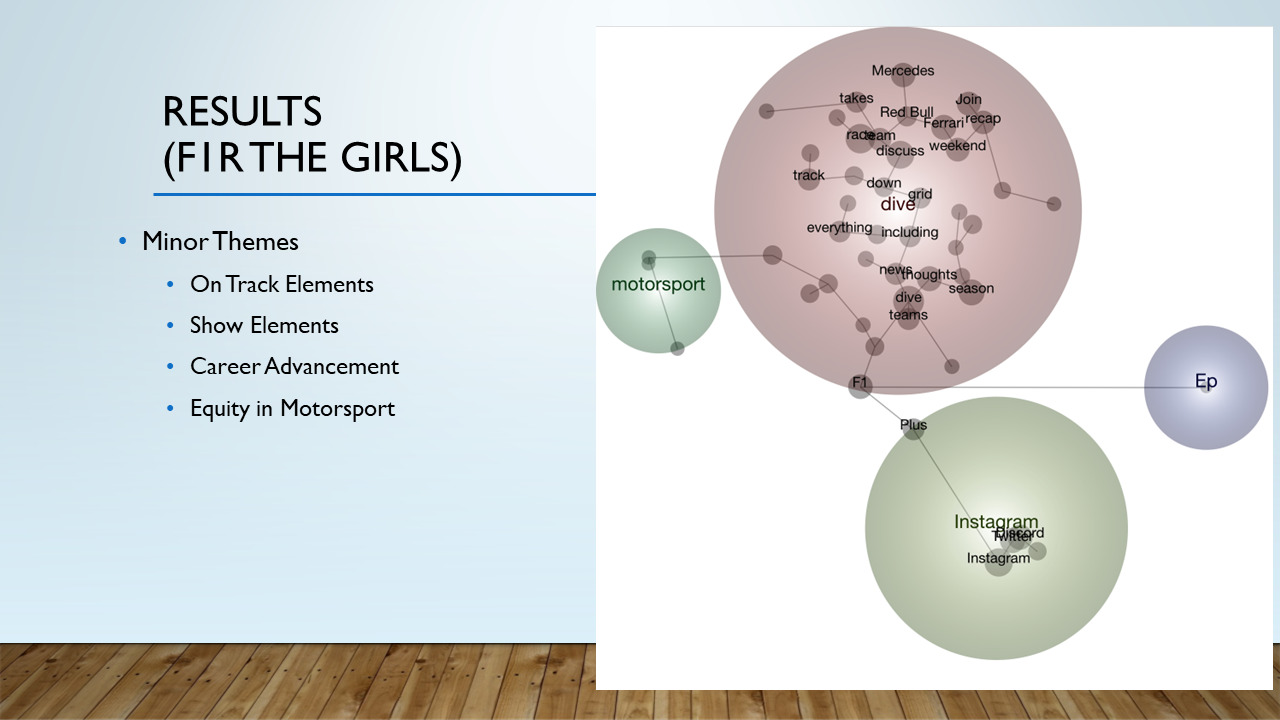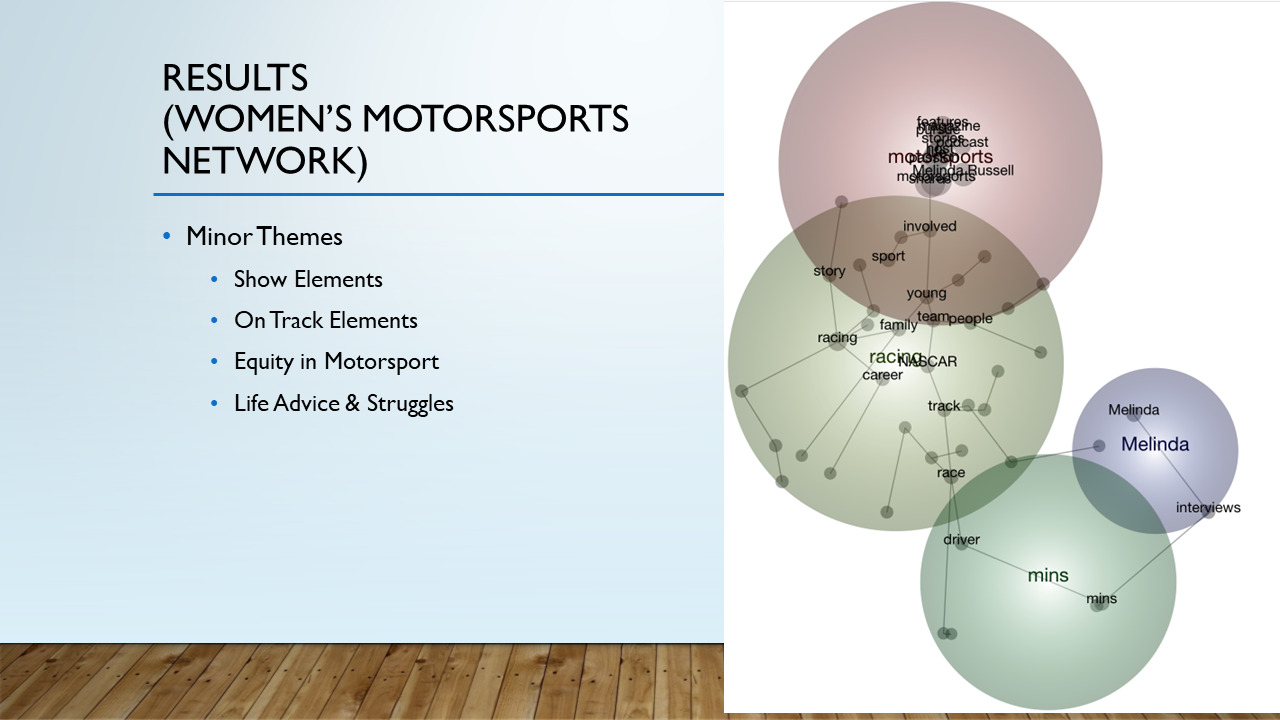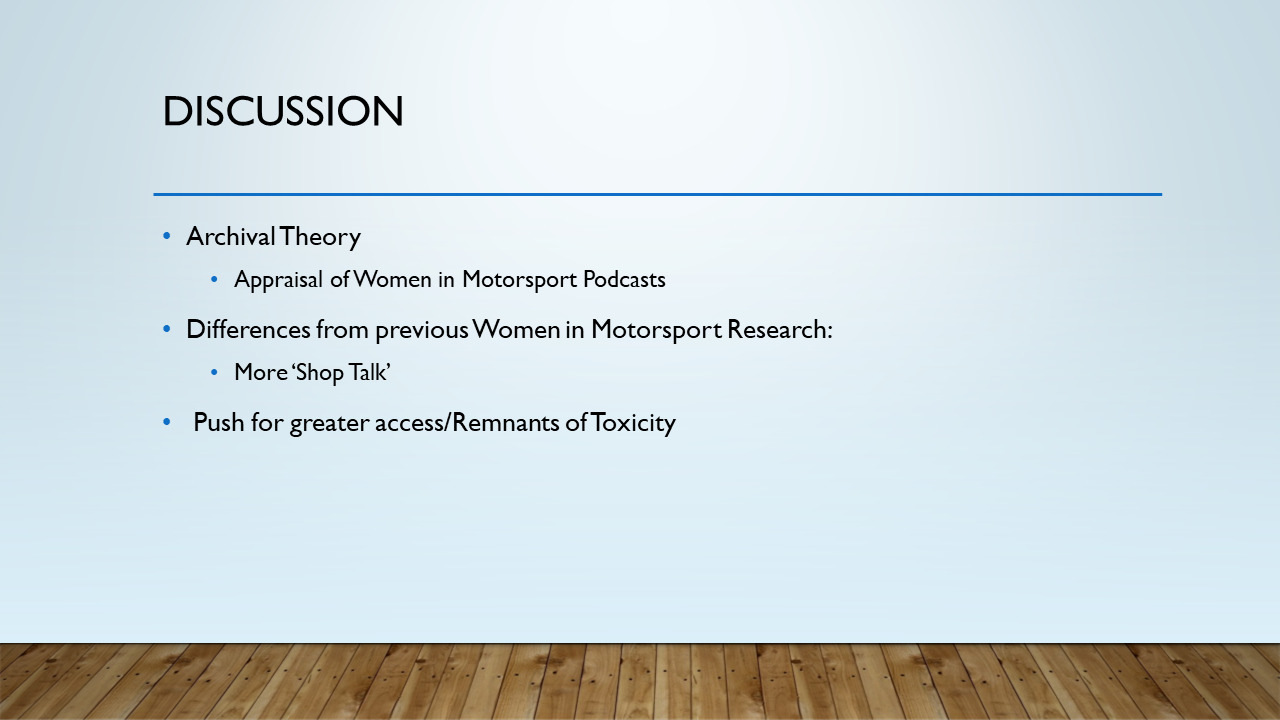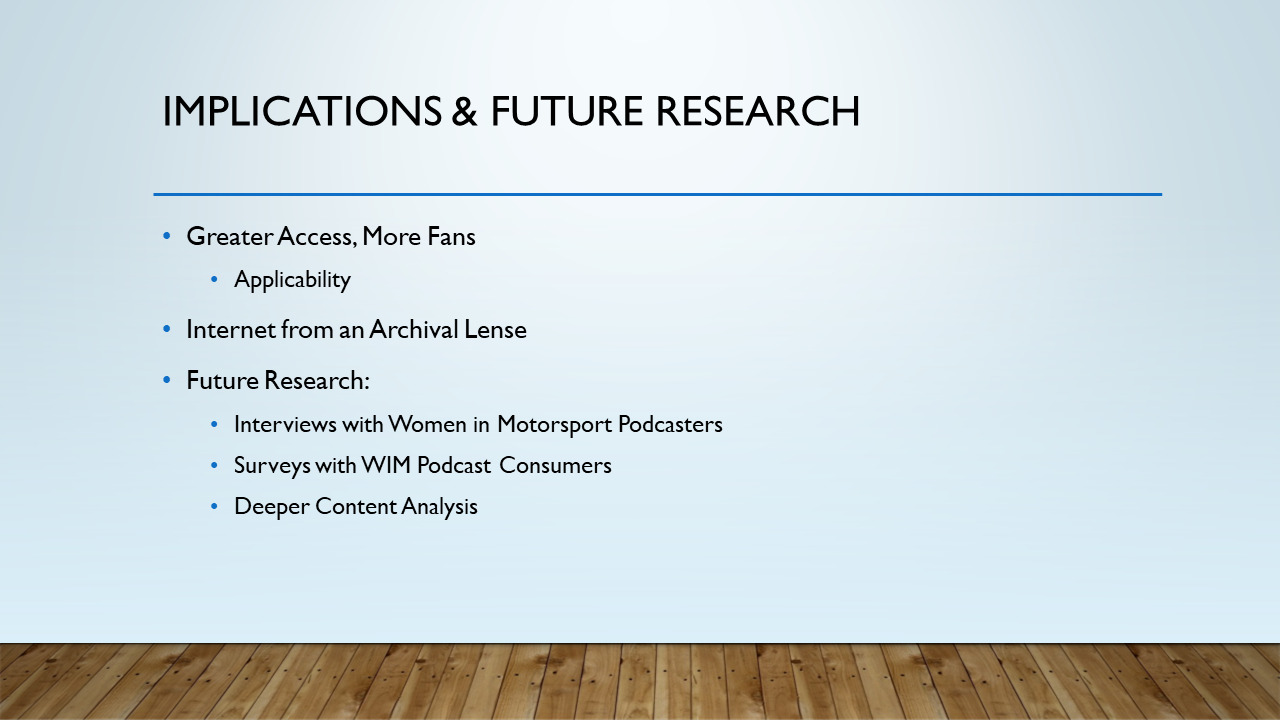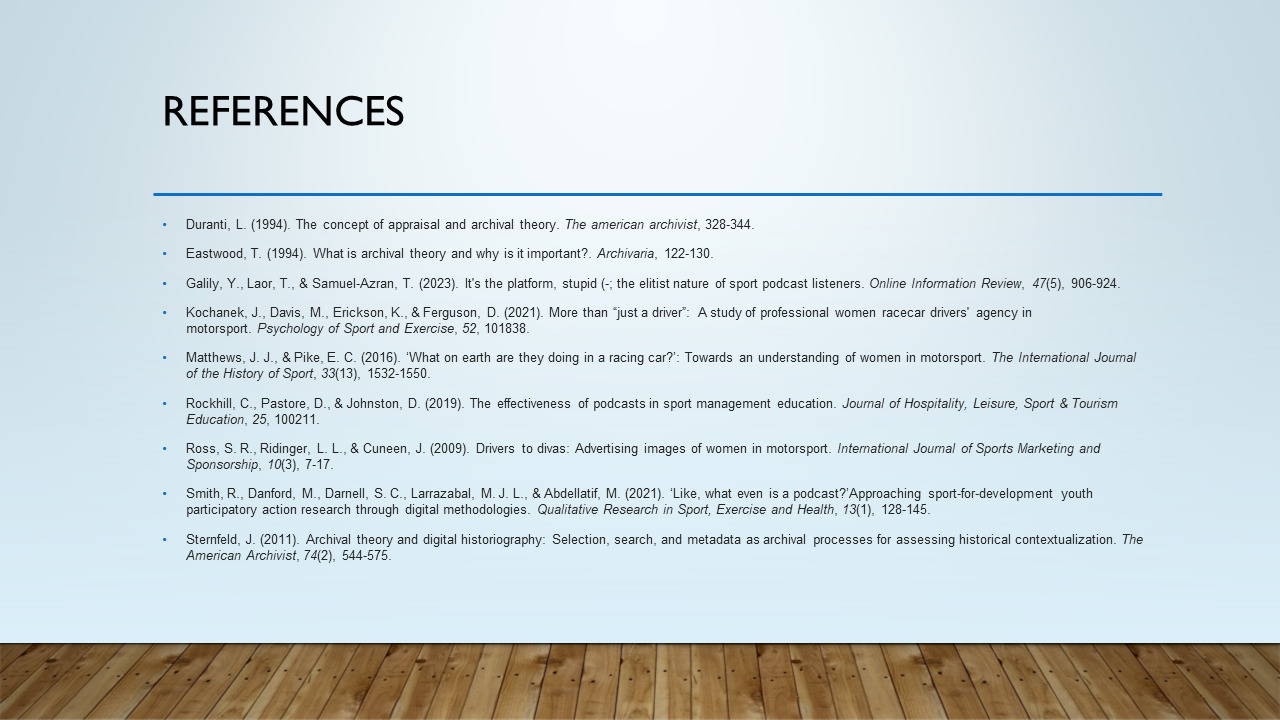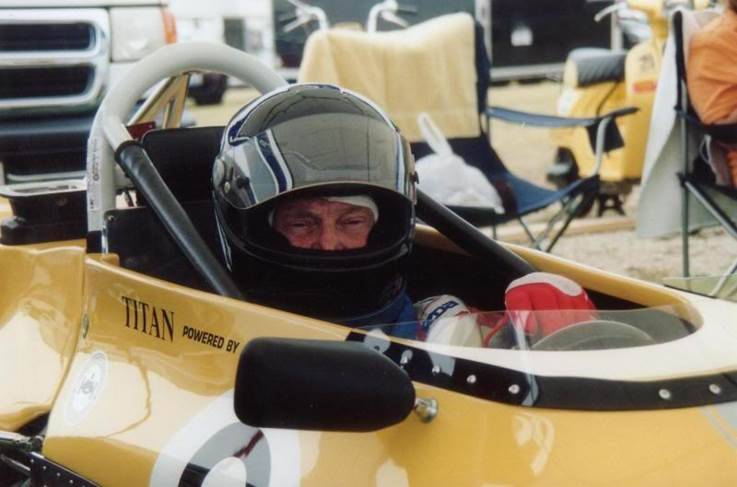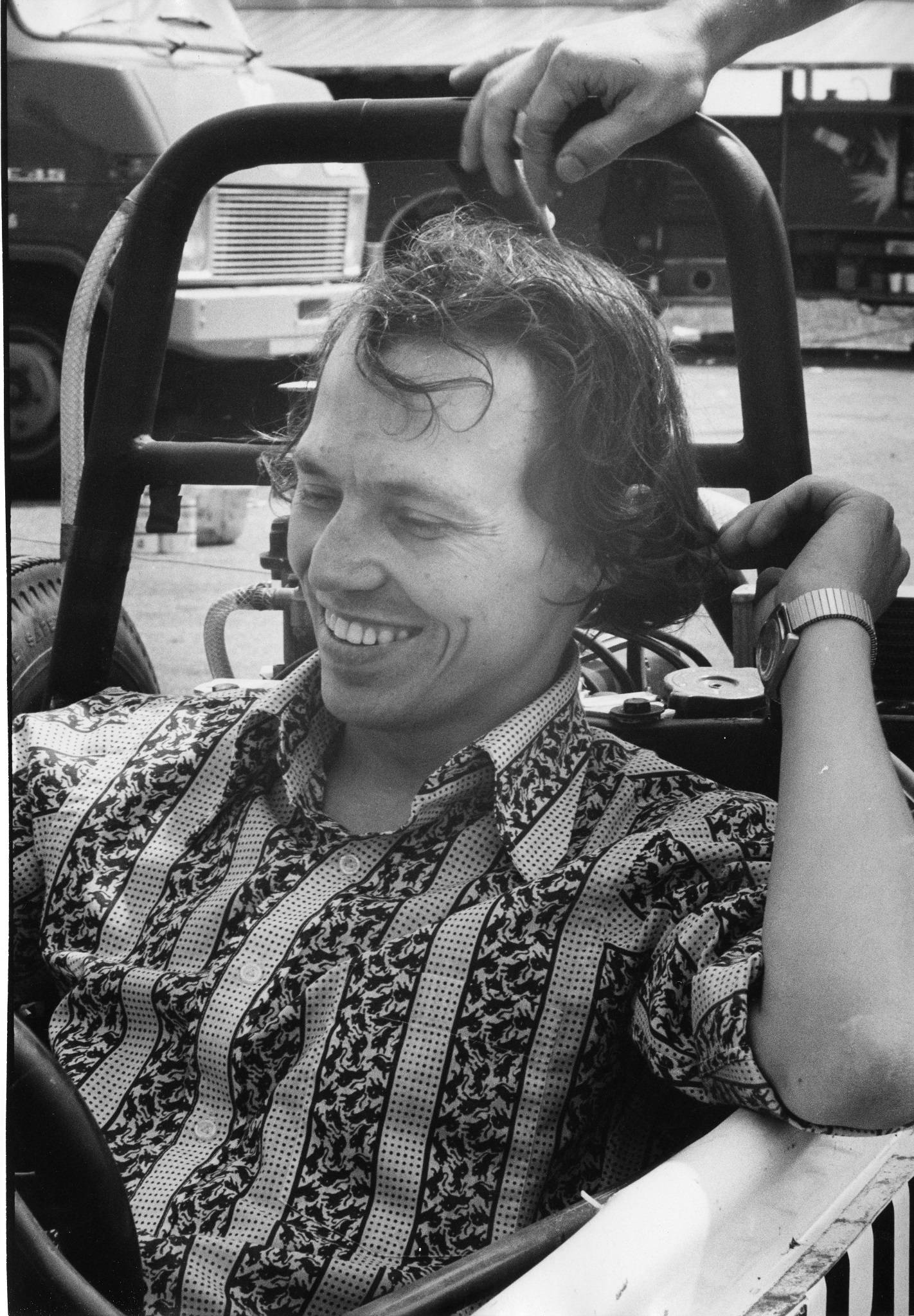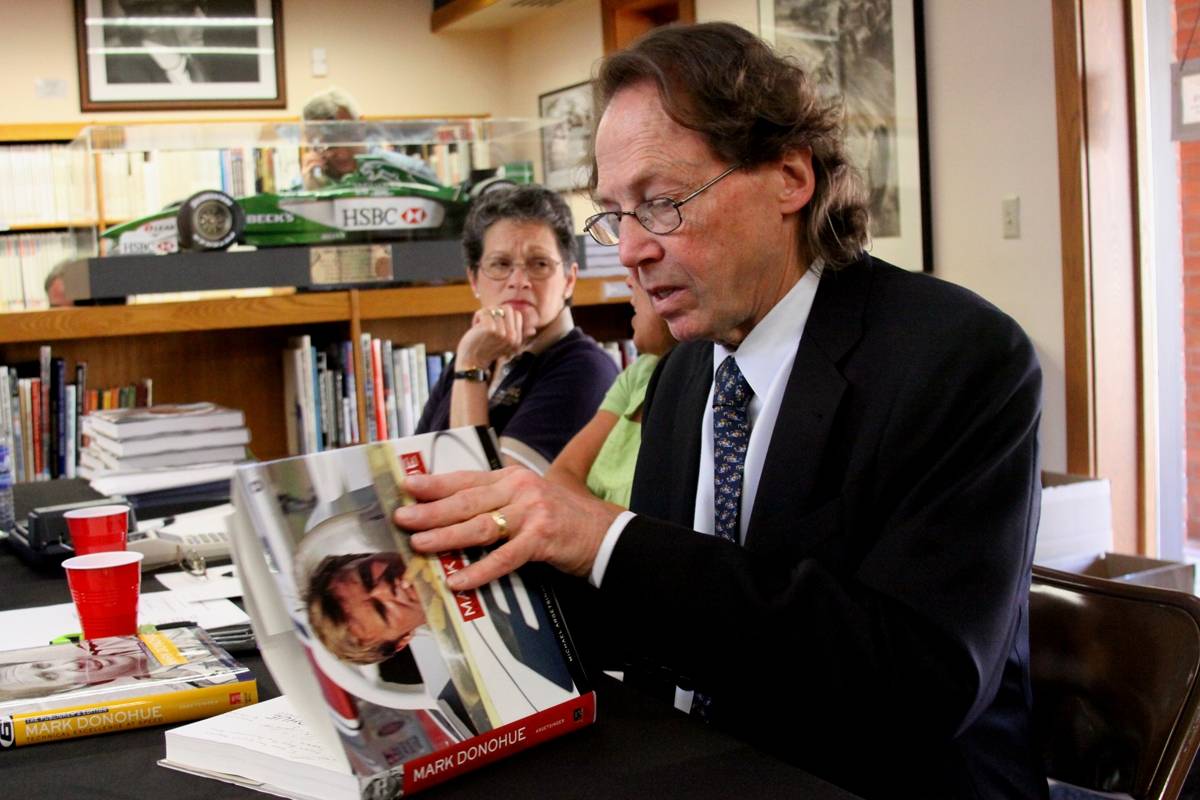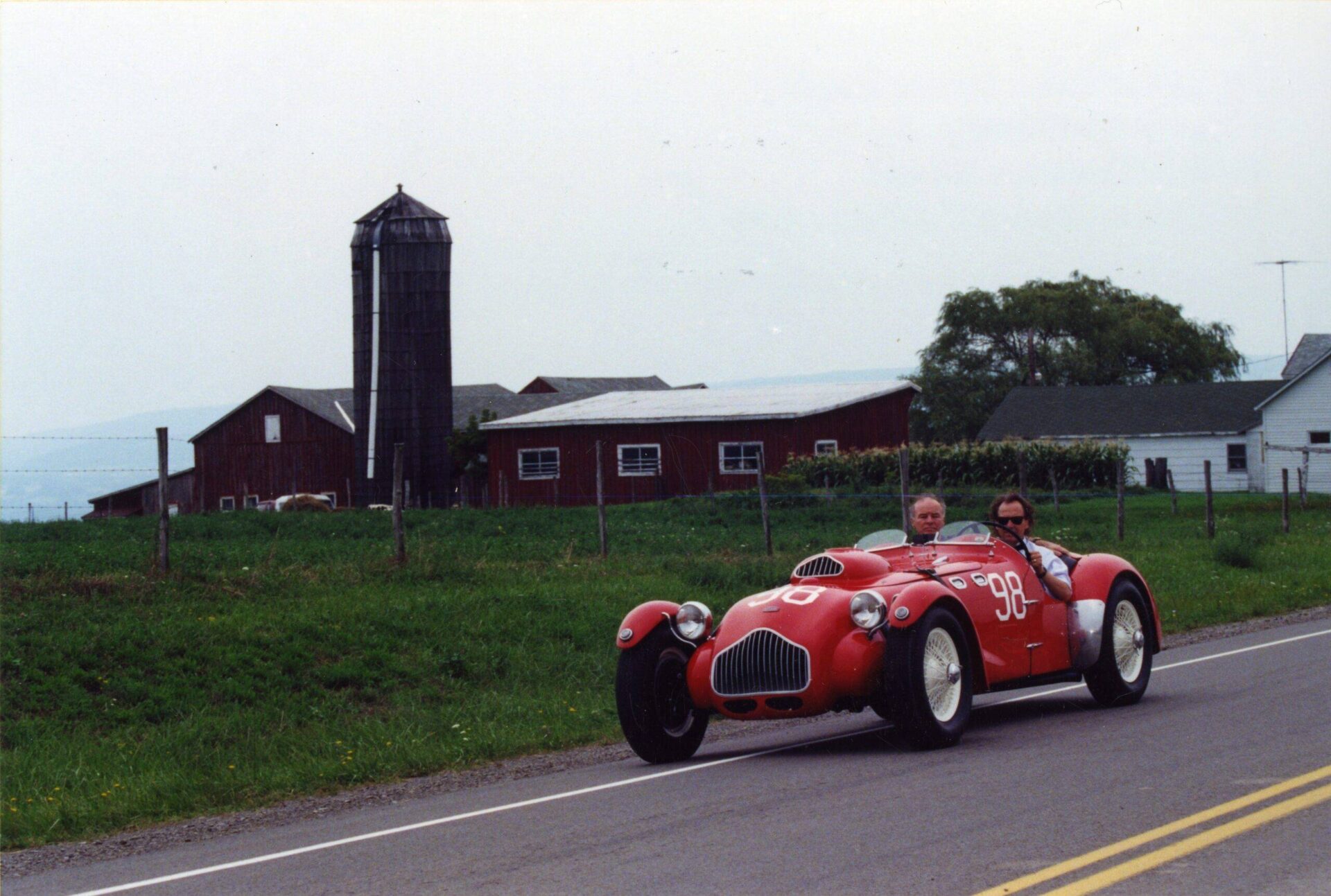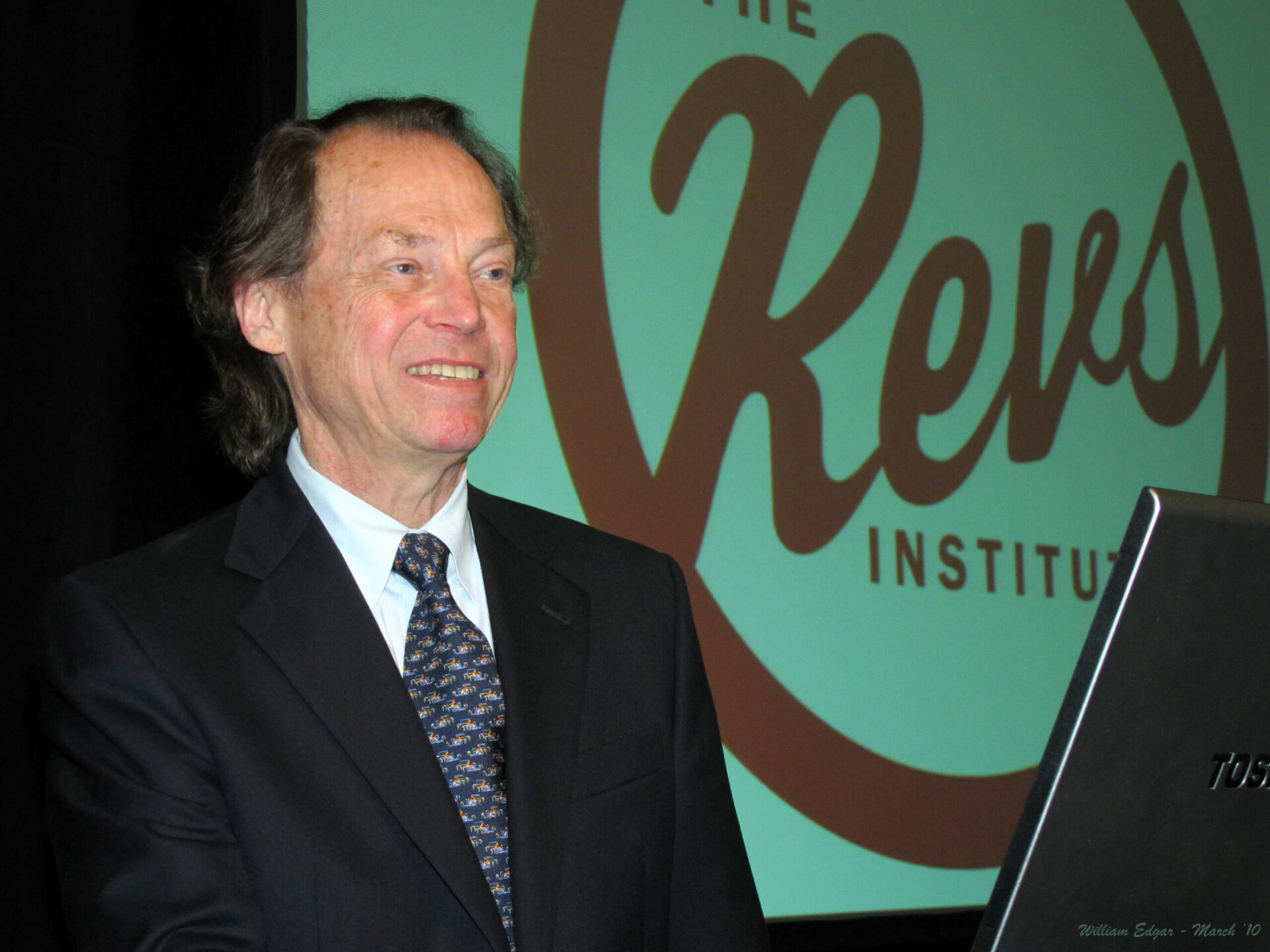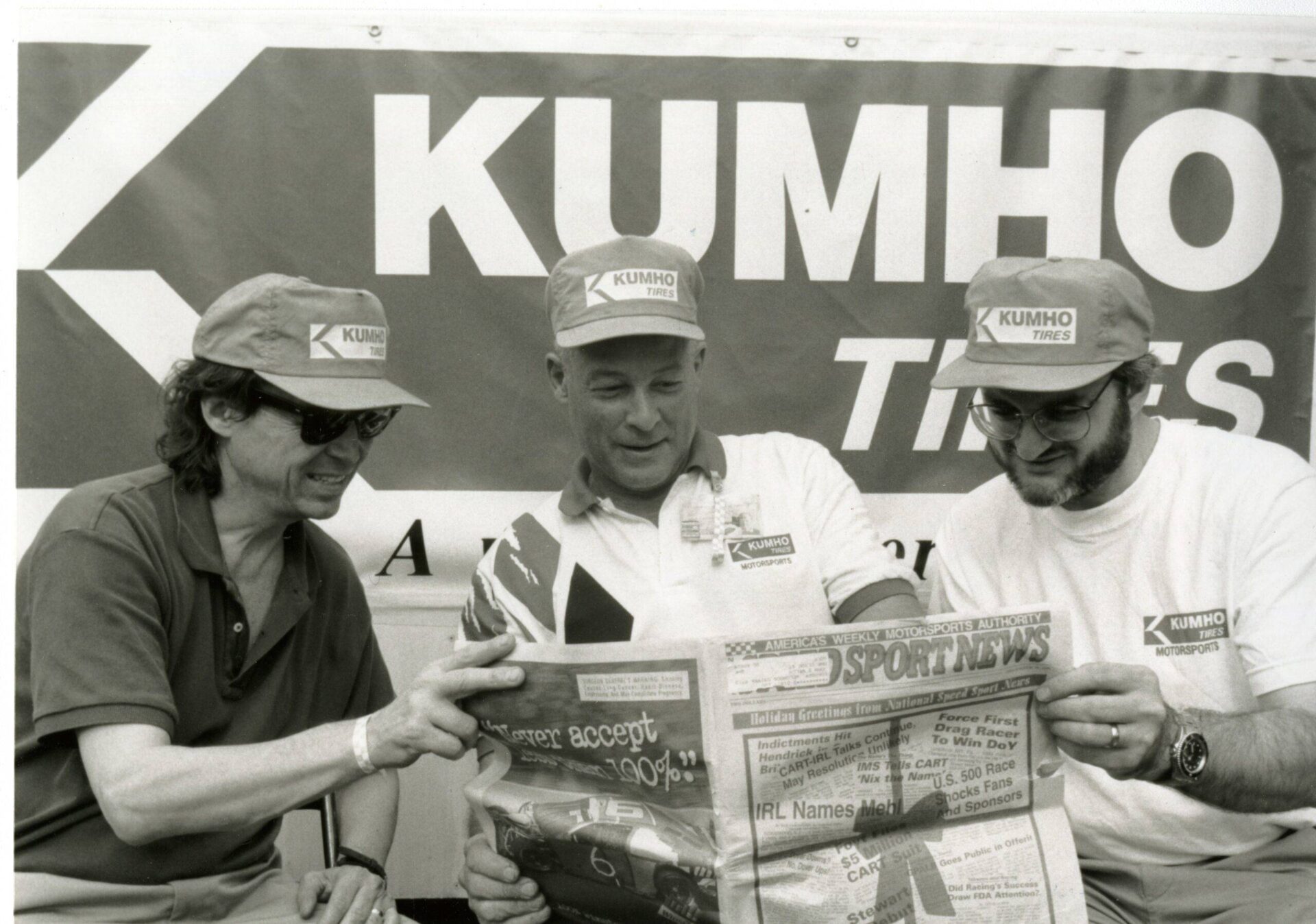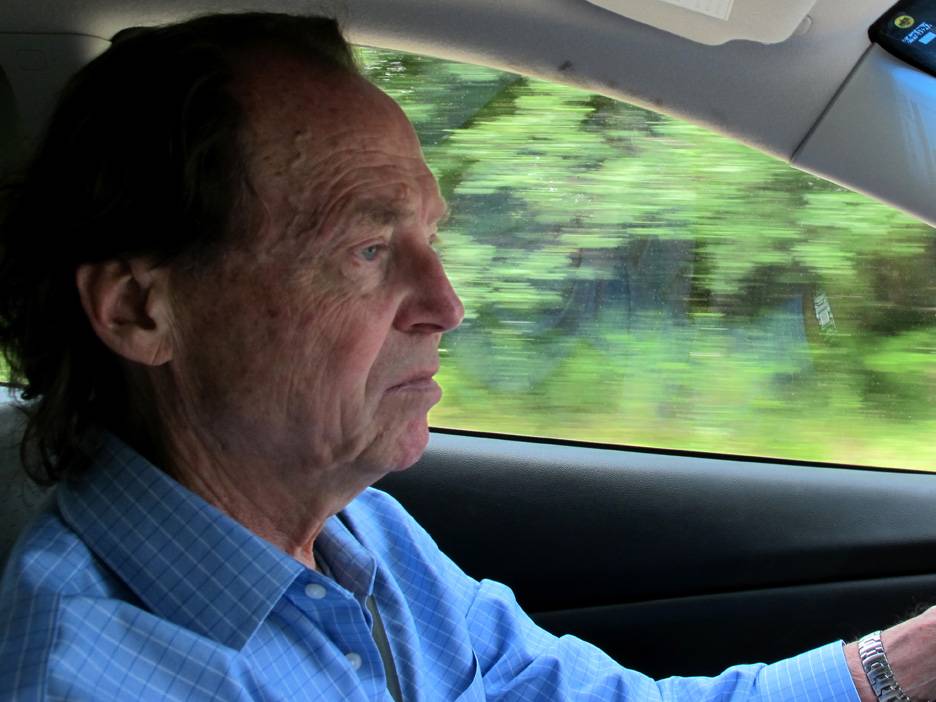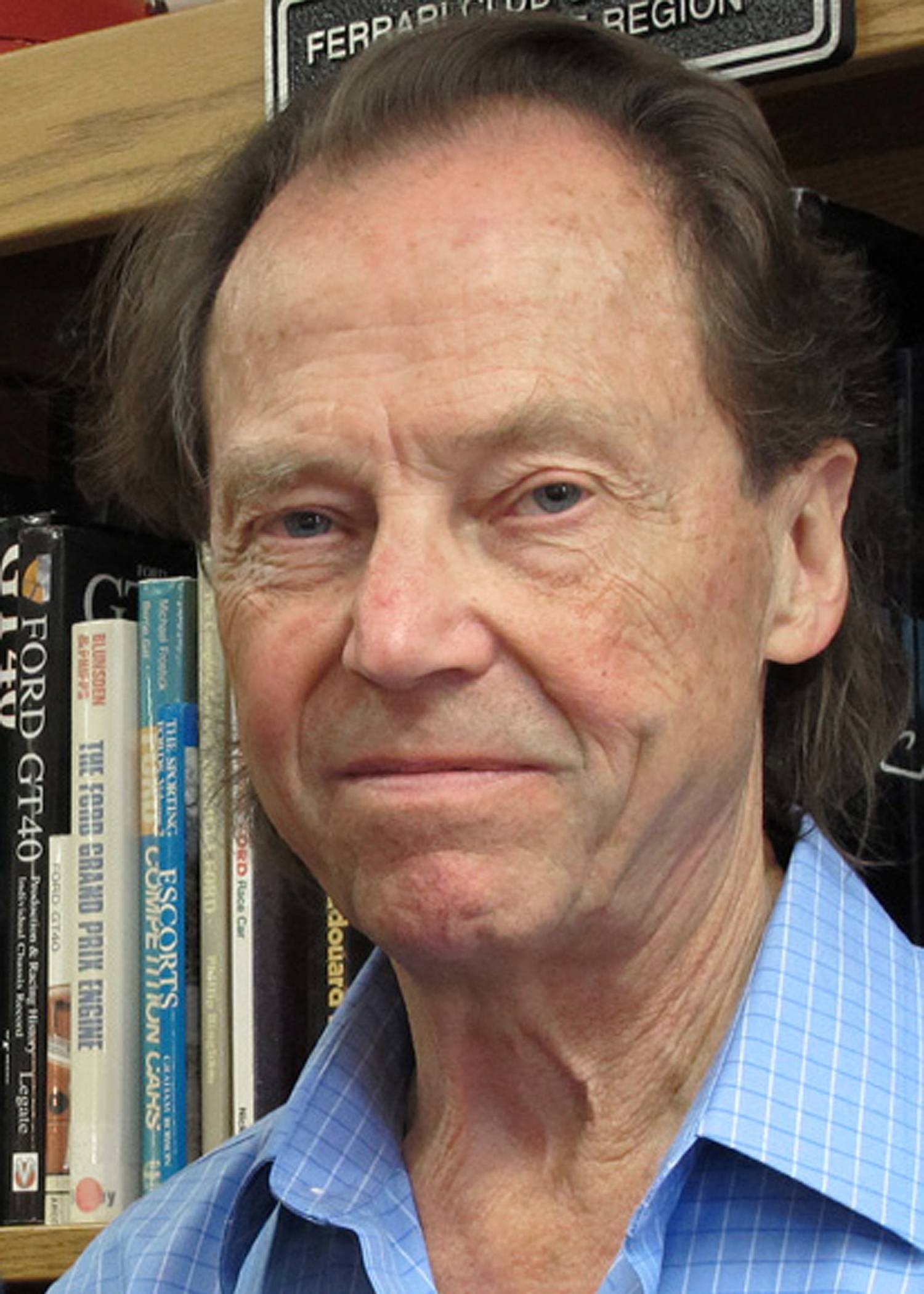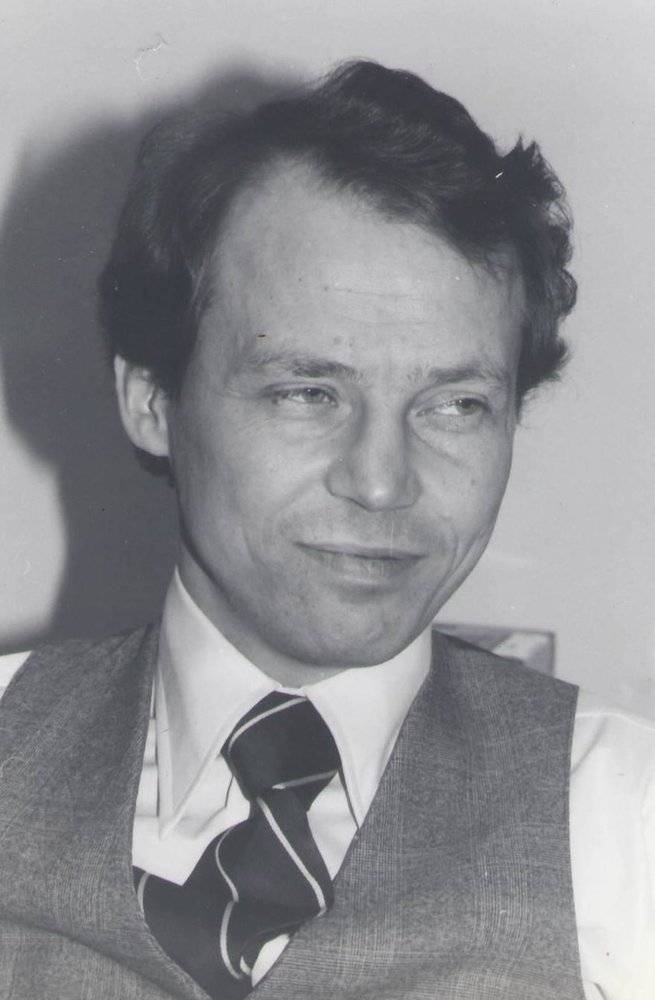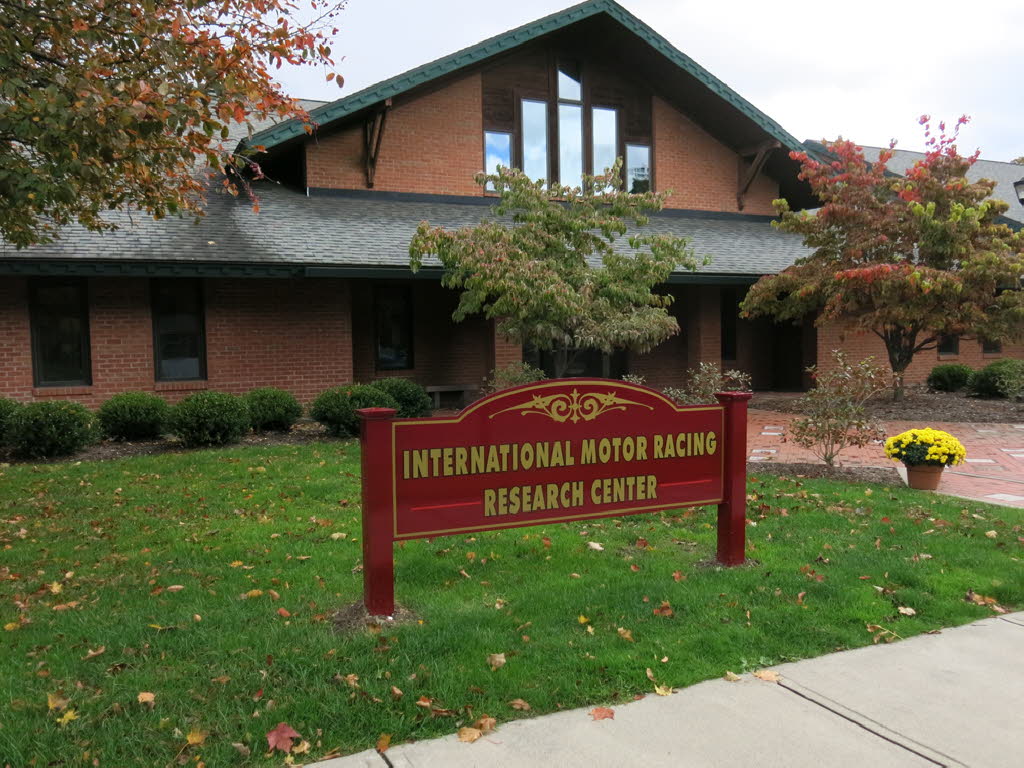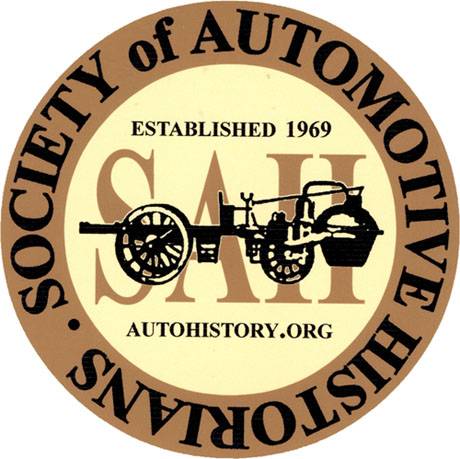Modern technologies have expanded our ability to share a wide variety of interests. Motorsport, primarily focusing on women in motorsport, has found social media as a medium to help grow actual participation numbers. Expanding on this theory, while also taking into consideration a later discussion on modern archival methods, this presentation will overview how podcasts surrounding women in motorsport are self-presenting to the public at large. In particular, a thematic analysis of women in motorsport show descriptions, and episode descriptions, will be explored, with themes and expanded research discussed.
Bio
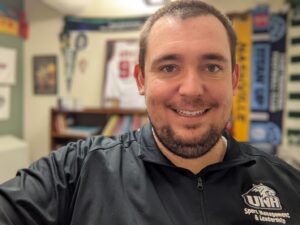
Mike Stocz is the assistant director for the department of kinesiology, and a senior lecturer of sport management & eadership, at the University of New Hampshire. He is one of the founding members and editor in chief of the Journal of Motorsport Culture & History. Mike’s recent works have included a co-authored book chapter about the future of Formula 1, as well as works surrounding big game hunting legislation on land preserves, an economic funding model for college athletics, and critiques on K-12 coaching certifications surrounding sexual assault.
Notes
Transcript
[00:00:00] Breakfix’s History of Motorsports series is brought to you in part by the International Motor Racing Research Center, as well as the Society of Automotive Historians, the Watkins Glen Area Chamber of Commerce, and the Argettsinger family.
An overview of motorsports podcasts focused on women by Mike Stokes. Modern technologies have expanded our ability to share a wide variety of interests. Motorsport, primarily focused on women in motorsport, has found social media as a medium to help grow actual participation numbers. Expanding on this theory, while also taking into consideration a later discussion on modern archival methods, this presentation will overview how podcasts surrounding women in motorsports are self presenting to the public at large.
In particular, the thematic analysis of women’s motorsport show descriptions and episode descriptions will be explored, with themes and expanded research discussed. Mike Stokes is the Assistant Director for the Department of Kinesiology and Senior [00:01:00] Lecturer of Sport Management and Leadership at the University of New Hampshire.
He is one of the founding members and Editor in Chief of the Journal of Motorsport Culture and History. Mike’s recent works have included a co authored book chapter about the future of Formula One, as well as work surrounding big game hunting legislation on land preserves, an economic funding model for college athletics, and critiques on K 12 coaching certifications surrounding sexual assault.
Mike will be talking about an overview of motorsport podcasts. Focused on women. Mike is one of our more important people with the Oregon Singer. He’s also the Journal of Motorsports History. He’s the, uh, publisher, editor, chief cook and bottle washer. Take it away, Mike. Good morning, everybody. Again, my name is Mike Stotes.
I’m from the University of New Hampshire. Today’s talk comes by way of a talk that really started last year by my colleague, Dan Simone, when Dan came up with a [00:02:00] couple of other presenters and started to talk about Title IX women in motor sports. And one of the things that really stuck with me through last year’s symposium and afterwards was, how do we make sure that women find or have space carved out for them within motor sports communities?
And me being one of these sneaky millennials thought, well, we already probably have a spot for that. Heading back home. I was listening to one of these weird, freaky podcast things, and I thought, you know, there might be something to this. So the idea for this piece of original research kind of spurred from last year’s conference.
So some previous studies in motorsport that surround women suggest that in a lot of ways, coming back to Danica Patrick, as mentioned earlier by Mark Howe, a lot of media representations of women in motorsport. Are very over [00:03:00] sexualized, rarely, at least in popular media, do they go into the finesse, the skills and capabilities there in in terms of podcasts themselves.
Podcasts are heard. Worldwide can, in most situations, be downloaded and heard almost free of charge for many different providers. Some, there will be some sort of a fee associated with them. Some have advertisements for them. Really, it’s a new phenomenon that occurred just after the turn of the millennium.
For the study itself, what I decided to look into was podcast titles, not necessarily individual podcasts themselves, but podcast titles that circled around, namely, women in motorsport. So we’ll get to why that’s a little bit of a problem later on. But being an academic and how we [00:04:00] got here, some of the background literature surrounding podcasts, podcasts have been used in a couple of different ways.
In particular, sport is one of the most popular venues for podcasts to be housed within sport podcasts. Some of the previous literature suggests that sport podcasts can be used as a way to bring Folks from diverse, and in many instances, repressed groups, socially, economically, or otherwise. Other podcast literature suggests that podcasts today, when we think of K 12 and even higher education, are being used as ways to help students learn.
For example, one of my colleagues has a podcast dedicated solely to adapted physical education, so think Paralympics, Paralympic Games, in which he uses [00:05:00] to re emphasize Key points from different lectures, classes, et cetera. And it has helped out tremendously with retention for his students. Lastly, within sport podcasts in particular, listeners self identify themselves as A, listening to podcasts to try and increase their overall knowledge for a particular sport podcast subset, but B, also self identify as being higher than your average intellect for a sport fan in that.
So, meaning, if somebody were listening to, let’s say, a basketball podcast, they would identify themselves as somebody who may know the NBA better than an average fan. To tie this in somewhat with the ideas I got from Dan’s roundtable last year, I decided to go with a theory called archival theory, which archival theory is essentially how librarians in particular Choose which artifacts, be that books, [00:06:00] collections, photography, video, digital media as well.
What is represented in their library coffers? What are they spending money on to keep these things around and available for public consumption? One of the main critiques of archival theory is something that we’ll talk about a little bit at the end, too. This idea called appraisal, and how we evaluate one piece of memorabilia or artifact versus another.
And why we may keep one versus the other. Sternfeld, in particular, decided to expand on archival theory beyond your brick and mortar libraries and suggested that, hey, this wacky internet thing may actually be a good place to expand archival theory and start to look at more of a bottom up approach of what fans are wanting to listen to or find on the internet.
Last off, the women in motorsports literature. Without beating a dead horse [00:07:00] too much, very over sexualized representations of female athletes tended to occur up until and still today, but in particular it was a focal point of the 2010s in literature. Before we go into what all of these weird looking phrases are, I want to describe how we got the sample and kind of what that looks like for this study.
The sample consisted of podcasts that falls under one general category that focuses solely on women in motorsport. What that means is A really, there weren’t that many podcasts found from a general search of women in motorsport via Google in particular, seeing as how it is still the most popular search engine in the world and coming from a perspective of not being an intensely listening podcast [00:08:00] consumer.
Meaning that they may be fairweather and just seeing what’s out there. Sure, we could have went through and used these same search terms through Google Podcasts, Spotify, and others. The way we wanted to attack this was from how a general consumer may try and find this information. So, some of the things that are left out.
Danica Patrick’s podcast, that may or may not be conspiracy theory laden, was left out because the focal point wasn’t. necessarily on motorsport. Further, there are a number of different overarching podcast titles that may have a bunch of little subtitles underneath them. So for example, one of them in our data set.
Women in motorsport hosted a variety of different shows that focused on women in motorsport, but from different angles. Similarly, there are other podcast titles that may have special once a month [00:09:00] episodes that focus on women in motorsports. Those were not included in this, mostly because the main focal point, again, wasn’t expressed in the title.
And it could be a secondary type of interest for the host and podcasters getting to what’s on the slide what we did and what we found was using a general search term, women in motorsport, we were able to find at first it was only five. Then it became eight, then it became 12, but at first a whopping five podcasts that fit a very general Google search criteria of the eventually 12 that we would find.
We just stuck with the original five copied all of the descriptions. from each of the episodes, as well as the title, descriptions, et cetera, the show descriptions, et cetera, put them in a word document and did something called an inductive thematic analysis. So [00:10:00] essentially what that is, after transcribing all of these things, we went through line by line and inductively reasoned that this line is suggesting X or Y.
Afterwards, we went back through the entire data set one more time, went line by line through each of these combined related terms. And, we came up with general overarching themes and some sub themes therein. Alongside of that data collection, we collected how many episodes were under each title, which as you can see, vary greatly, from 8 all the way up to 197.
From a Wendy’s Were Published perspective, Women in motorsport was the longest tenured going back to 2016. All of our data collection ended roughly September of this year. Average run times. We also kept those as well. Some [00:11:00] discussions that had with others about. Podcasts and how long a podcast should be range anywhere from five minutes for just quick bits, quick news bits, things of this sort all the way up to two hours if it’s an in depth conversation here, we found that the average hovered just below 40 minutes per podcast.
Obviously, there were some outliers, some of which included trailers, such as a 30 minute snippet of, Hey, tune in when we’re going to talk with such and such. Some of the results, on the left side of each of the following slides, are the themes that we generated, myself and a student that helped me out with this, named Caleb McChesney.
We went through all of the data sets and By ourselves. Came up with these themes. Agreeing, disagreeing at parts. On the far side to me, you’ll see a bunch of these word bubbles. These word bubbles were put together by a [00:12:00] software called Lexamancer. Nowadays we think of a software such as Chatbot GPT that’s been all over the news.
Think of LexaMancer as sort of a dumbed down version of Chatbot GPT. Its main function is to find connections between different words. And the way that we use that, at least in qualitative research, is to help certify that what we’re seeing is generally correct. From each of these, some of the data points were not sufficient.
I will say that to be really verified VOX and answer, we could talk about that when we get there. We broke these down into different subsects being. The title and title descriptions and each of the individual podcast title and episode descriptions. This slide is the overall results of when we put all of the codes together [00:13:00] across all of the titles, etc.
So the major themes included on track elements. So here we’re discussing racing. We’re talking about rules. We’re talking about results. We’re talking about ingenuity, talking with racers, things of this sort. Career advancement was a very interesting one in that it happened in two different ways. You had racers and administrators within motorsport.
We’re talking about how they advanced to whatever position that. They eventually were in, be it chief engineer, CFO, CEO, things of this sort. And then some of it was career advice and almost like a networking opportunity. Next we had equity in motorsport. So this theme itself was more positive than it may come out on the slide.
In that, sure, there were minor sub themes that suggested that equity in motorsport. Might [00:14:00] actually be still a toxic environment, but overall equity and motorsport was talking more so about developmental opportunities in particular for women. Then we have show elements, which this one goes more into the nitty gritty of podcasts.
So these would be things such as advertisements for an upcoming show talking about who they would be interviewing. A lot of times we would see. The hosts mentioned things that they were doing. So, for example, one of the major sub themes from a couple of different shows was the hosts would talk about, in particular, F1.
They would talk about their experiences in going to Formula One race at Silverstone. Miami and others. Some minor things that we found in particular to the Women in Motorsport podcast were life away from the track. So what were folks doing behind the scenes, which ties in a lot with other more social [00:15:00] media based sport research.
A lot of early social media research suggested that people were getting involved at the time, mainly Facebook and Twitter. It’s expanded now obviously to TikTok and others in that folks were getting on these platforms and following sports personalities because they had the chance of interacting with them and seeing what they were like without the helmet on.
When they weren’t in a car and then the last one life advice and struggles the one podcast women in motorsport Went on during the pandemic in which a substantial amount of that data set was geared towards Getting folks through the pandemic. Sorry if that brings up bad memories From just the grandiose podcast titles and podcast descriptions, the major themes that emerged from that were inspiration.
A lot of times in this theme that they would talk about why racers. Particularly women would get involved. Why the hosts [00:16:00] themselves wanted to get involved in this podcast elements, which we went over before social media, which was more so to help bolster other handles and such, such as Twitter handles, follow us on particular blogs or if they had a different host site and sustainability sustainability here, meaning green initiatives, things like formula E.
So again, those were just the titles and now going into the specifics per podcast itself. So the themes that we saw in particular for the Females in Motorsport podcast were show elements, obviously talking about what would happen within this podcast. elements. A lot of times data from this portion would talk about things such as the politics of racing.
So going behind the scenes of why certain opportunities were given versus not. And then career advancement, which we mentioned previously. Some of the on track [00:17:00] elements were, if we look at the bubble slash Lexamancer part, we’re tied in with STEM initiatives. Some STEM initiatives obviously tied in with sim racing, For girls on the grid again, we had show elements again, what’s coming up, who’s coming up, things of this sort.
One of the most interesting elements from this data set included. Some of the career development aspects, including talking with and putting forward almost more so than others, administrators within motorsport who were women, including discussions with Sabre Cook, mechanical engineer and racer in the W Series or former W Series.
Renee Winterbottom, who was a data engineer and Rami Mayer. As an engineer for triple a racing. So this podcast in particular almost went out of its way to find women [00:18:00] in these spheres, almost as a way to try and inspire the next generation and show that women can be involved in motorsport as well. Girls across the grid.
This one in particular podcast had the least amount of episodes available and published and was a little bit more. relaxed and conversational in tone. So some of the elements that we would see in particular for the show would be discussions about weekend activities. We’ll put it that way. We also saw a little bit here of off track performances and off track activities Circulating around which Formula One racer was dating whom and such.
Not really many interviews with that one. Then we had F1R for the girls. This one had many of the same elements that [00:19:00] we saw in the beginning. But one of the bigger things that we did see from this one Was equity within motorsports and here we saw more of the negative themes of equity IE inequity start to pop up more We don’t have the opportunity to advance in some of these Positions most of the formula one or similar drivers academies are not accepting women for X Y Z reasons Things of this sort.
Then the biggest data set was the Women’s Motorsport Network, which again had a variety of different shows here. The podcaster themselves would talk with a number of very interesting individuals that were almost motorsport adjacent and more car enthusiast adjacent. For example, a jeweler who would take cars from her husband’s garage that were completely totaled and [00:20:00] Would make jewelry out of the wreckage and try to paint it from factory original colors as well.
So there was a lot of ingenuity there. We also saw in particular from this data set, more girls, i. e. Under 18 age 18 year olds getting involved not only as drivers But also in administrative roles such as doing things like play by play color commentary Calling the race in one instance an engineer So in this data set we saw a lot of very unique things life advice and struggles We went over a little bit in the beginning so I won’t hammer that one Okay, so we got all this data, so what does this suggest?
At the start of this project, to be very blunt, I thought that most of the podcast would turn out extremely negative. But overall, the vibe, if you will, was extremely positive, [00:21:00] minus a few instances. Within archival theory, just being an academic for a second, We can see how in certain podcasts, in particular the ones that had the most episodes and were running the longest, we can almost see appraisal working in action.
Appraisal here meaning how we evaluate one artifact versus another. How we evaluate one podcast versus another. The longevity very much suggests that they will still be around and that there is a fair amount of interest from listeners. A little bit of a deviation from previous sport literature that involves women.
Our data suggested that there was a lot more talk around the technical aspects of the sport. Some of the other technical aspects not already overviewed. We talked about engineering a fair amount, but different race aspects too, and development. Things that we haven’t necessarily seen in other sport related literature.
And that there needs to be some sort [00:22:00] of a push for greater access. We did see that in particular with STEM. Again, a little bit of a negative connotation, but it was usually coupled with some sort of positive aspect. Implications and future research. One of, again, the biggest limitations for this study was that we weren’t able to capture every little bit.
of women and motorsport related podcasts, be it individual episodes or even show titles. This limitation is more systemic and goes back to podcasts themselves. Within podcasts, you cannot necessarily put in what we call search engine optimization terms. In other words, how Google finds Certain websites and other elements.
Those have not been fully integrated into podcasts as of yet. Now, the podcasts that we did find that didn’t directly match the search term usually had a separate web [00:23:00] page that worked as a housing unit that linked you to Here’s where our podcasts are available on Spotify, Google Podcasts and others. In future research and in continuing with this, obviously getting those little remnants and finding out what’s going on in more of your one off type episodes as well as the A little bit harder to find podcasts would absolutely be necessary.
And one other consideration that we could have is interviewing or doing some sort of survey with podcast hosts or if available, their audiences to find out from a uses and gratifications lens why they find equity in listening to these podcasts and such. With that, we’ll open it up for questions. Thanks for your attention.
Thank you, Mike. Thank you, Mike. I feel somewhat qualified to ask this question. Please. You obviously focused on podcasts that entirely focus on, you know, women in motorsports. [00:24:00] Do you think that perhaps if we are looking at where women have come, that maybe it’s time to shift towards It’s a focus on women as drivers, women as mechanics, not just for the sake of women as women.
Yes, I totally 100 percent agree with you that we need to be focusing on the content of the competitor as opposed to their gender or sex. Absolutely. 100%. And I think a lot of the literature that came out at the end of the 2010s suggested as such across all sporting types, not just motorsport. One of the, you know, reasons Janet Guthrie, you know, Denise McCogge were so successful is they viewed themselves as drivers first.
But I would say, you know, obviously very interesting research. I’d love to see not just the cause, but also the effect looked into. So who are these podcasts reaching? Who is actually watching these podcasts? Is it younger women, women from their 30s to their 50s? What is the actual quantifiable success of these podcasts in getting women [00:25:00] actually involved in motorsport and not just sort of.
Qualitative research is more exploratory, if you will, right? So we’re trying to break some ground in some area that hasn’t really been looked at because we don’t know what’s going to happen. For the, who watches, or listens, watches if it’s video one, definitely one of the future research areas could be surveying audiences for these major podcast titles for women in sport.
That’s where you would get the, how do you identify, age bracket. All of those like census questions that we all love taking so much, right? That would be one way that we could look into it. In terms of involvement and actionable items to get more women involved in sport, that one definitely goes way beyond podcasts.
I will definitely say that, but I will say that podcasts probably will play at least a minor role in getting more women involved moving forward. in particular with the popularity of podcasts for your Two to 17 year old [00:26:00] audiences. All right. Thanks again, everybody for your time.
This episode is brought to you in part by the international motor racing research center. Its charter is to collect, share, and preserve the history of motor sports, spanning continents, eras, and race series. The center’s collection embodies the speed, drama, and camaraderie of amateur and professional motor racing throughout the world.
The Center welcomes serious researchers and casual fans alike to share stories of race drivers, race series, and race cars captured on their shelves and walls and brought to life through a regular calendar of public lectures and special events. To learn more about the Center, visit www. racingarchives.
org. This episode is also brought to you by the Society of Automotive Historians. They encourage research into any aspect of automotive history. The SAH actively supports the compilation and preservation of papers. Organizational records, print ephemera and images to safeguard, as well as to broaden and deepen the understanding of [00:27:00] motorized wheeled land transportation through the modern age and into the future.
For more information about the SAH, visit www. autohistory. org.
We hope you enjoyed another awesome episode of Brake Fix Podcast brought to you by Grand Touring Motorsports. If you’d like to be a guest on the show or get involved, be sure to follow us on all social media platforms at GrandTouringMotorsports. And if you’d like to learn more about the content of this episode, be sure to check out the follow on article at GTMotorsports.
org. We remain a commercial free and no annual fees organization through our sponsors, but also through the generous support of our fans, families, and friends through Patreon. For as little as 2. 50 a month, you can get access to more behind the scenes action, additional Pit Stop minisodes, and other VIP goodies.
As well as keeping our team of creators fed on their strict diet of [00:28:00] fig Newtons, gumby bears, and monster. So consider signing up for Patreon today at www. patreon. com forward slash GT motorsports, and remember without you, none of this would be possible.
Livestream
Learn More
Consider becoming a GTM Patreon Supporter and get behind the scenes content and schwag!
Do you like what you've seen, heard and read? - Don't forget, GTM is fueled by volunteers and remains a no-annual-fee organization, but we still need help to pay to keep the lights on... For as little as $2.50/month you can help us keep the momentum going so we can continue to record, write, edit and broadcast your favorite content. Support GTM today! or make a One Time Donation.
This episode is sponsored in part by: The International Motor Racing Research Center (IMRRC), The Society of Automotive Historians (SAH), The Watkins Glen Area Chamber of Commerce, and the Argetsinger Family – and was recorded in front of a live studio audience.
Other episodes you might enjoy
Seventh Annual Michael R. Argetsinger Symposium on International Motor Racing History
The International Motor Racing Research Center (IMRRC), partnering with the Society of Automotive Historians (SAH), presents the Seventh Annual Michael R. Argetsinger Symposium on International Motor Racing History. The Symposium established itself as a unique and respected scholarly forum and has gained a growing audience of students and enthusiasts. It provides an opportunity for scholars, researchers and writers to present their work related to the history of automotive competition and the cultural impact of motor racing. Papers are presented by faculty members, graduate students and independent researchers.
The history of international automotive competition falls within several realms, all of which are welcomed as topics for presentations, including, but not limited to: sports history, cultural studies, public history, political history, the history of technology, sports geography and gender studies, as well as archival studies.
The symposium is named in honor of Michael R. Argetsinger (1944-2015), an award-winning motorsports author and longtime member of the Center’s Governing Council. Michael’s work on motorsports includes:
- Walt Hansgen: His Life and the History of Post-war American Road Racing (2006)
- Mark Donohue: Technical Excellence at Speed (2009)
- Formula One at Watkins Glen: 20 Years of the United States Grand Prix, 1961-1980 (2011)
- An American Racer: Bobby Marshman and the Indianapolis 500 (2019)


